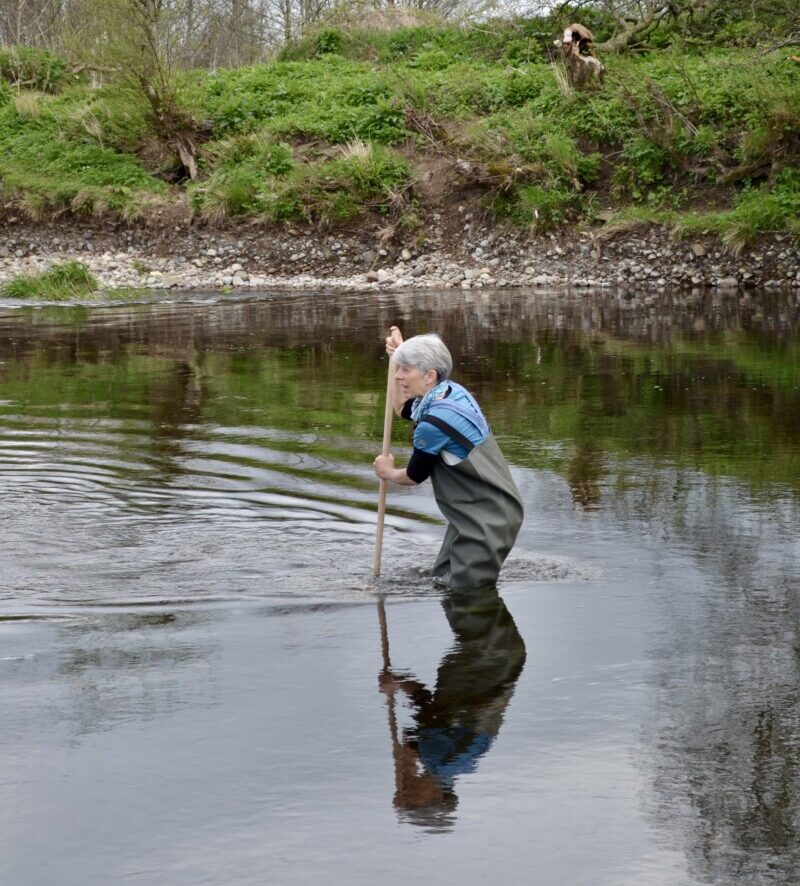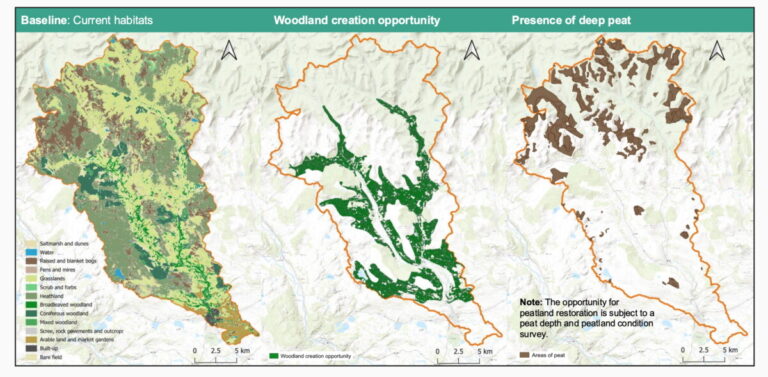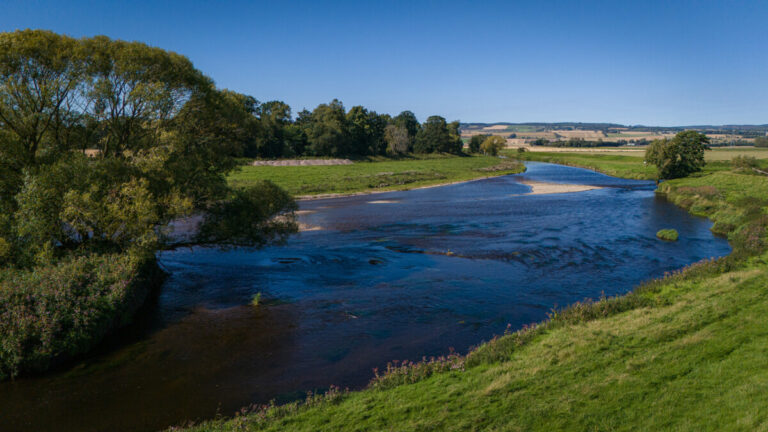Our partners the Tay Ghillies Association have just shared the 2022 SmartRivers data. SmartRivers is a project of WildFish, which works to protect wild fish and their waters.
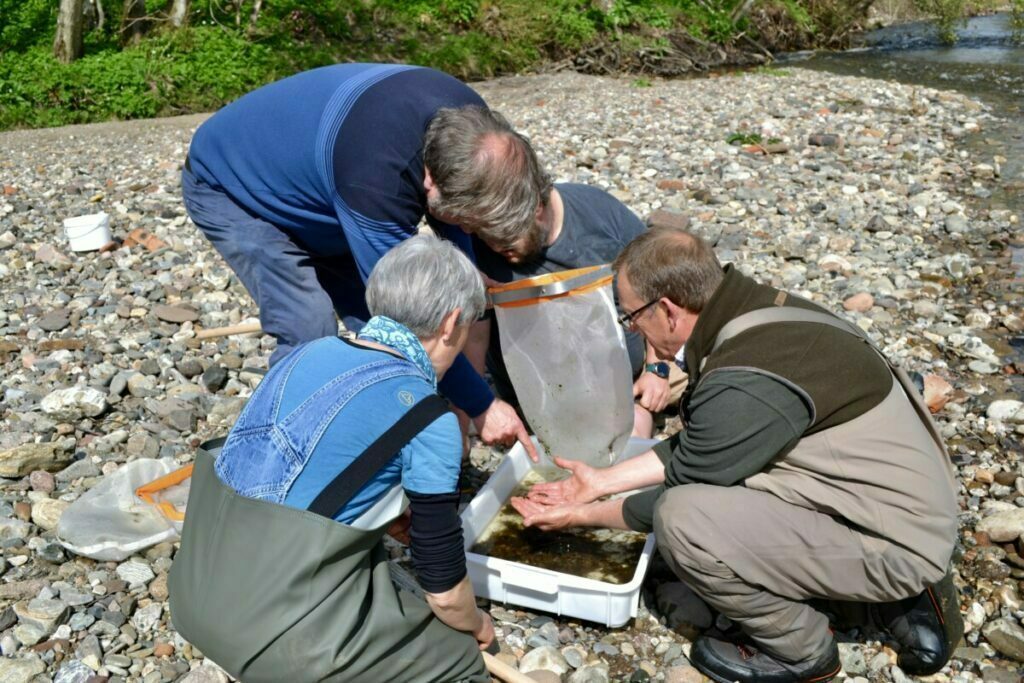
Human activities put rivers under constant pressure from a variety of pollutants – almost everything we do on land has a consequence for our waterways. This pollution stops rivers supporting healthy populations of freshwater species.
Data on invertebrates are collected as they are key indicators of the health of the water. Invertebrate species are quite particular about the water quality conditions they need to thrive. Because of this, they all have different tolerances to pollution.
Looking at which invertebrate species are present, along with their numbers, allows us to indicate what water quality stressors are present at a site, and the level of impact this stress is having on the system.
For example, stoneflies and most species of mayflies and caddisflies are very sensitive to organic pollution whereas shrimps, worms, blackfly and chironomid larvae are more tolerant of excess organic matter and low oxygen levels.
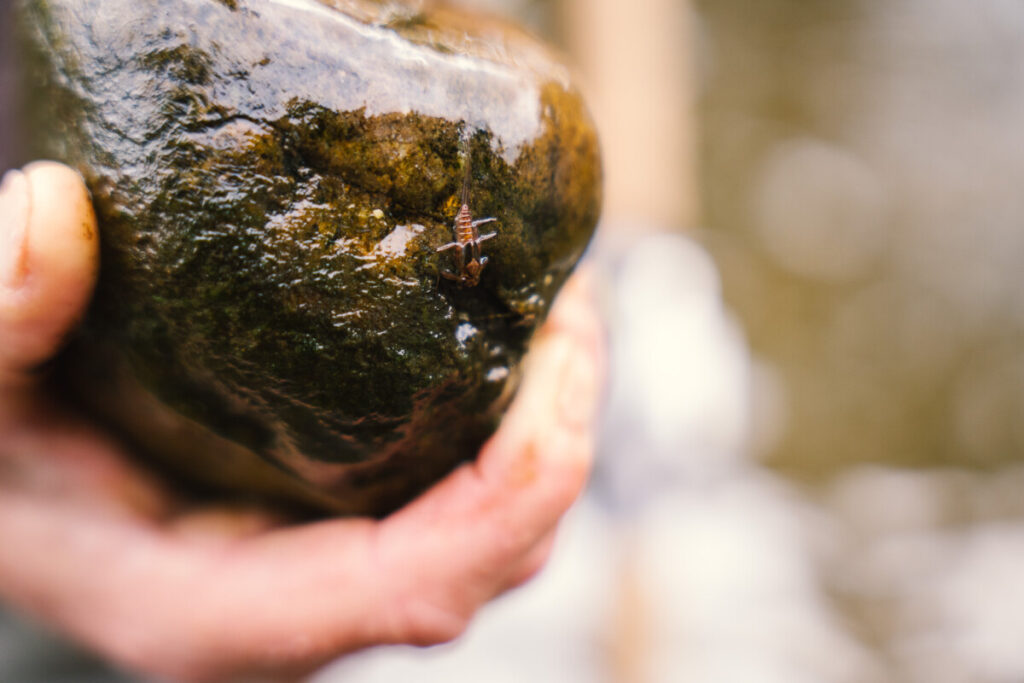
Where invertebrates live in the water and are subjected to pollution over time, they give a more representative picture of long-term water quality impacts. This is in contrast to spot water samples taken for chemical testing, which only represent river conditions at a single moment in time.
SmartRivers is the gold standard of invertebrate citizen science schemes. The monitoring is designed to detect the chronic pollution pressures plaguing our rivers, not just gross pollution events.
Invertebrate samples are preserved and a microscope is used to complete analysis to species-level where possible.
You can see the results of the 2022 surveys across 153 sites on 55 rivers across the UK, including our Rivers Ardle, Ericht and Shee – all part of the River Ericht Catchment – here.
